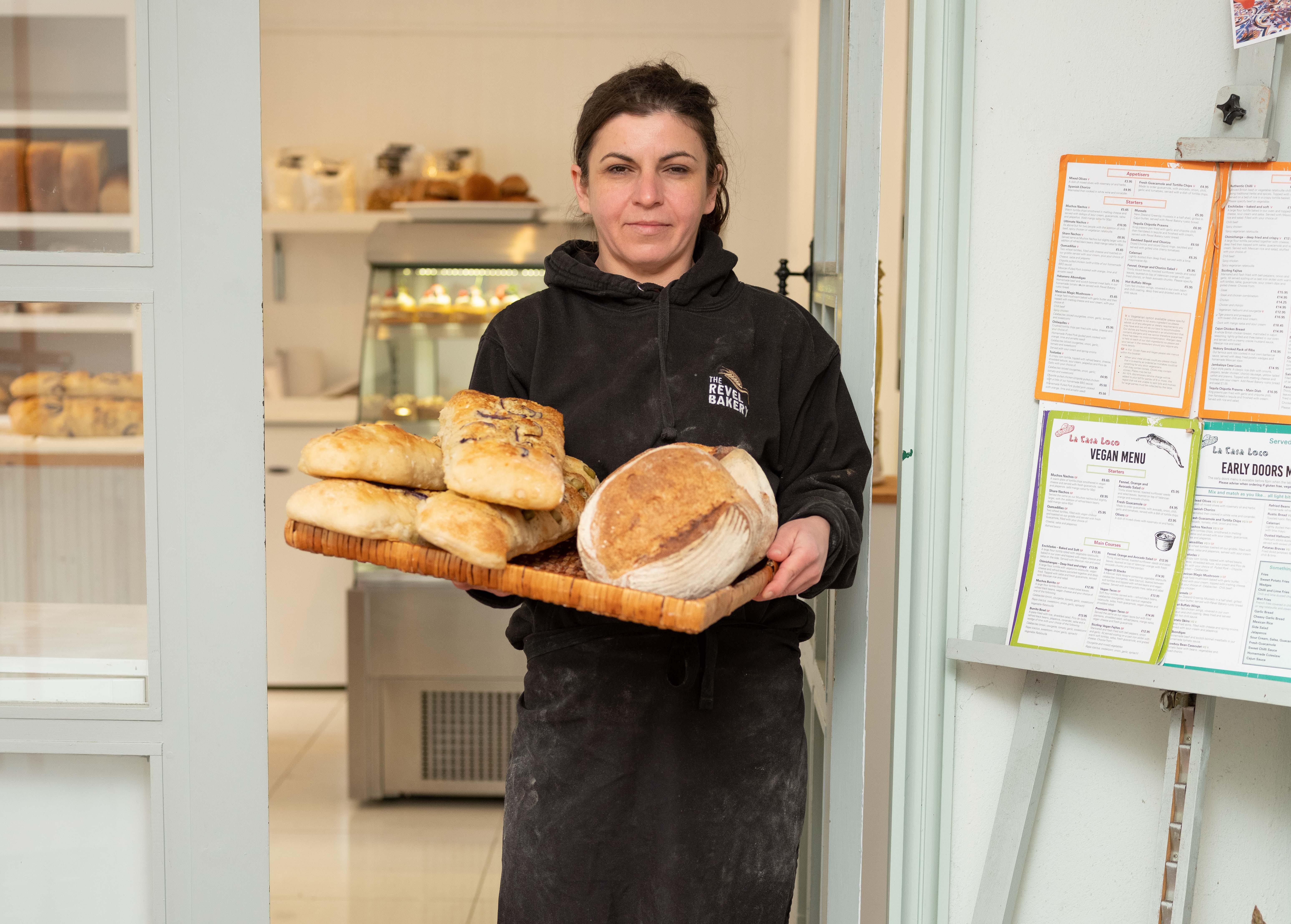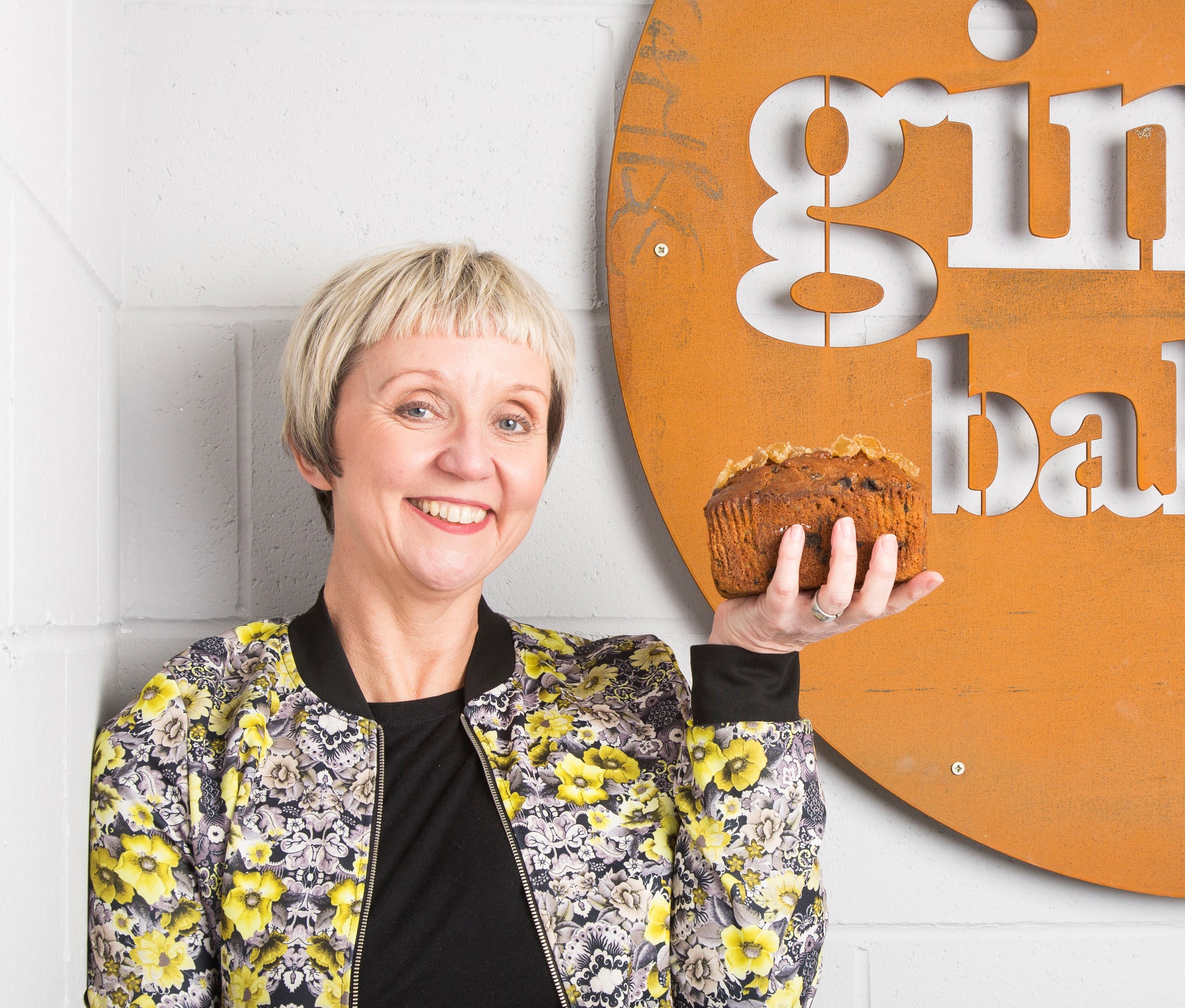Free digital copy
Get Speciality Food magazine delivered to your inbox FREE
Get your free copy
Mention the ‘butcher, baker and candlestick maker’, and an image of three men will spring to mind. And for some time, that view would have been representative in the world of artisan food. But times have changed, and some of the best in the business - from butchers, bakers and cheesemongers to producers and deli owners - are female.
For most, a career in food was always on the cards. For some, it was the product of an unexpected twist or shift. But for all, there is an unflinching passion about what they do. In many sectors, women have historically faced obstacles to success, and while things are changing many would say more needs to be done. So, is it the same in artisan food?
For Carolyn Hopkins, owner of The Truckle Truck, a cheesemonger on wheels operating from a specially-converted 1969 Citroen HY van, the journey was almost accidental. She started work at popular cheesemonger Turnbulls as a Christmas job and never left, staying for 13 years until it closed. “It was out of nowhere, completely,” she says. “I had no intention of going into the food industry.”
When Turnbulls closed she looked at taking on her own shop but realised that would result in spending as much time in the ‘back office’ as she would actually selling cheese to customers - what she really wanted to do. “The only way to do that was to find a business that would allow me to do that,” she says, and found herself the Truckle Truck in 2018. Based in Shaftesbury, in the heart of the Blackmore Vale in Dorset, she travels around the local area with a counter full of outstanding cheeses, doing exactly what she loves - selling to customers.

While Hopkins doesn’t feel that being a woman has been a particular barrier to success, she has experienced firsthand a few stereotypes. “Particularly in cheese there’s such a long history of women being involved in making and selling cheese,” she says. “But through the years I have seen the assumption that you can’t be the shop owner, you can’t be the business owner. It must be your husband’s business. It’s only occasional, not often, and those people usually look more embarrassed than I feel angry,” she says. In addition, since she started her own business, she’s noticed a slightly different relationship with suppliers than there was when she worked at Turnbulls - though she admits that might not necessarily be down to her being a woman, but could be to do with the size of the business.
Similarly, while there might be obstacles for women when it comes to artisan food, there are also barriers in general when it comes to setting up a small business. “I think at the moment it’s such a difficult time for small businesses that getting anyone into it regardless of what gender they are is hard,” she observes.
Lac Hincu, owner of the Revel Bakery in Rugby, Warwickshire, a small shop where she sells her own bread and other baked goods direct to consumers, agrees. “Like many industries the baking - the breadmaking side - is dominated by men. I think this is partly due to the physical nature of the work, unsociable hours, and all the other social side effects as well. Maybe I was lucky and had a lot of support around me but I didn’t find it difficult because I am a woman. Then again, I never asked permission. I just did it.”
Like Hopkins, Hincu thinks the difficulties in being a woman at the helm of an artisan business are as much due to the nature of small business as gender. “Running a business is difficult at any point,” she tells Speciality Food. “Running an artisan business can be soul crushing at times. You have to sell something that you create, something you poured your soul into.” On top of that, artisan retail means you’re often selling your own product direct to customers - which means negative feedback can be a “hard pill to swallow”.

“Personally I find that if you have a good product, are genuine and hardworking, most people will root and support you ‘even if you are a woman’. We just need to take space, put ourselves out there and if our products are good the market will decide. We can blame the man, the culture, the society but you might be surprised how many people will support you as well.”
If being a woman is no longer an obstacle to setting up and running a successful artisan food business, could it actually be a bonus? Lisa Smith, owner and founder of Ginger Bakers in the Lake District National Park, started off selling her cakes at farmers’ markets - acting as retailer as well as baker, before expanding the business. She founded Ginger Bakers in 2006, starting small from home and has seen her business thrive in the last 17 years, despite challenges including a devastating flood in 2015 that resulted in the loss of their building, stock, and ingredients, as well as a breast cancer diagnosis, plus the Covid pandemic, which forced her to adapt, focusing on online retail to overcome difficulties.
While resilience is a key part of that, Smith points out that female entrepreneurs are getting more support than ever in the food industry. “Owning a small business in the food industry as a woman is an exciting and empowering experience,” she says. “Female-owned food businesses in the UK are gaining recognition for their unique offerings. As a team predominantly comprised of women, we bring fresh perspectives, innovative ideas, and creativity to the table. The food industry now supports female entrepreneurs more than ever, with accessible networks and membership programs like Women in the Food Industry, Pink Link, and Lakeland Businesswomen’s Network.”

For Smith, owning a food business allows her to express her passion for food and nurture it within her team. She is full of praise for her “exceptional” product development team who are instrumental in introducing exciting new products to the market, but admits that navigating regulations, supply chains, and constantly changing needs of customers, can be a challenge, and require determination and adaptability as well as passion. “Overall, owning a food business as a woman in the UK offers an opportunity to make a mark in a constantly evolving industry, contribute to the culinary landscape, and inspire future female entrepreneurs. With passion, skill, and resilience, women can carve out their niche and create remarkable businesses in the food industry.”
Catherine Connor, who joined Kendal-based Lovingly Artisan Bakery just over a decade ago, is as open as her counterparts from other food businesses about the many challenges facing small business owners - whether female or otherwise. But she thinks that learning to play to certain strengths - some of which come with being a woman - can definitely help.
“Running a small family business isn’t easy because there just isn’t the infrastructure there to allow you to be totally devoted to learning,” she says. “You have to manage the practicalities of the day to day too and that means doing some serious juggling, which is something all women in business have to do.” The key to that juggling is working out the “yes I can dos”, the “permanent nos”, and the “no but let’s revisit when we’ve had time to look at things properly and plan”.
For Connor, formulating and managing expectations, and growing at a manageable pace, are the key to ensuring that things don’t spiral out of control. “Experience has taught me to play to my strengths, something most women do, call it intuition, creativity, or an eye for detail – whatever it is it works,” she adds. “I guess it comes from allowing the woman within to shine through - don’t let who you are be squashed. Unleash your character, then use your knowledge, ability and understanding to develop your business’s DNA. If you’re going to thrive, you have to be authentic to your values, which will impact the business’s appetite to sell produce effectively.” Lilly’s advice is similar, with the simple suggestion that any woman pursuing a career in this sector should: “Just be yourself, follow your instincts and don’t be afraid to stand tall”.
It’s clear that women are not just surviving, but thriving, in the world of artisan food. And individually, many have learned how to forge a path of success - not just as women, but as small businesses in the face of difficult economic times. But as a wider community, is there more that could be done to make artisan food more accessible than ever for women aspiring to enter it, finally removing any of the barriers that might once have existed.
For Hincu, it’s vital that women support each other and that that support extends from those at the top to those just starting out. “In my opinion women need to support each other in order to succeed,” she says. “We need to support the ones that are at the top and vice versa - the ones at the top need to show the path to success to ones who are just starting.” But while encouragement and support from those around you is important, her advice is “just start doing it”, and encourages anyone thinking of starting out in artisan food - whether producing or retailing, to take the plunge and not ‘wait for permission’.
Hincu has seen her own business evolve over the years, and while once dabbling in wholesale as well as direct-to-consumer sales, has returned to selling through her own shop, and enjoying the direct relationship with customers - many of whom queue out of the door first thing in the morning to get hold of her creations. “Don’t wait for permission,” she says. “If you create amazing food, get a stall on a Saturday at a market and sell your product and voila - you are an artisan business woman. Don’t overthink it - start small and build up.”
It’s clear much has changed for women in the world of artisan food, and continues to. And with women pushing the boundaries as producers, retailers and much more within the industry, it’s clear the days of male-only butchers, bakers and everything in between are long gone.